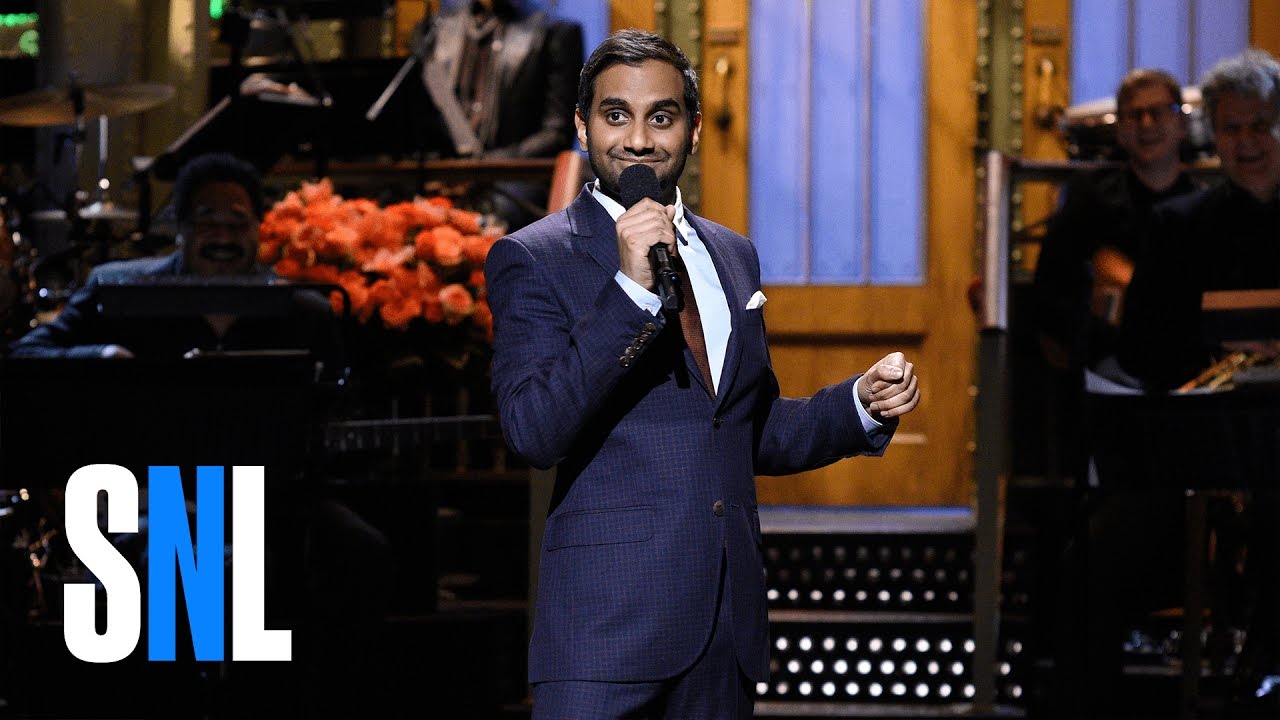
Aziz Ansari hosts Saturday Night Live, affirms AFSC communications research NBC/Saturday Night Live
This weekend, comedian Aziz Ansari hosted Saturday Night Live and delivered the first SNL monologue under the new Trump administration. In addition to speaking directly to the new president (who has been live tweeting the show in recent weeks), Ansari aimed his comments at the media for its portrayal of Muslim and Arab people.
Ansari joked that American viewers tend to see coverage that conflates Muslim people with violent extremism - and that they never see Muslims doing ordinary things. "Maybe what needs to happen is when they do the news report, they should do a second report about some other brown people that are just up to normal stuff — just to calm those people down," he said.
"So the reports are like: 'The suspects are considered armed and dangerous. Not armed and dangerous — these four other Muslim people that are eating nachos in Chicago. Let’s go to footage of them. Uh-oh, looks like Nasir just spilled a little cheese on his khakis! Got a little overambitious with that last dip! We’ve all been there!'"
Ansari echoed something we at AFSC have been researching and writing about. As we wrote in a recent blog post, news that focuses on the negative obscures the bigger picture. We see coverage of extremism and conflict, but not of everyday life and resilience. But skewed coverage that fails to convey the broader context can have serious consequences when viewers only associate Muslims and Islam with extremist violence.
Last year, AFSC reported that media stories about violent extremism typically follow a pattern that erroneously links Islam and extremism - even when religion is not a factor. We recommended that the media:
- Should avoid using language that links all Muslims with extremism, or any language that portrays any social group as homogeneous and monolithic. Advocacy groups like Race Forward and the Institute for Social Policy and Understanding have excellent resources for journalists writing about diverse communities.
- Tell stories that focus on actors' humanity, especially when writing about groups that have historically been marginalized by U.S. media—like Muslims. Humanizing individuals is key to readers and policymakers understanding all actors in a story as people, not as simply perpetrators or victims.
Ansari joked on Saturday that the media should tell stories about Muslims eating nachos and doing other ordinary activities. AFSC research shows that this approach could go a long way in undermining Islamophobia and creating more inclusive communities. Thank you, Aziz Ansari!